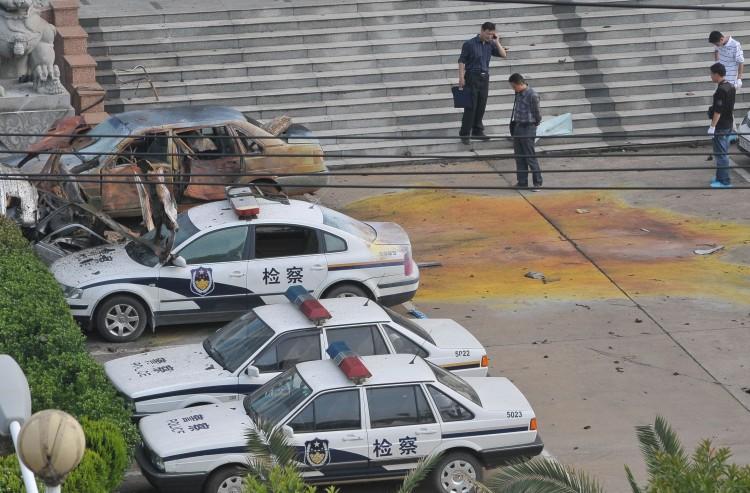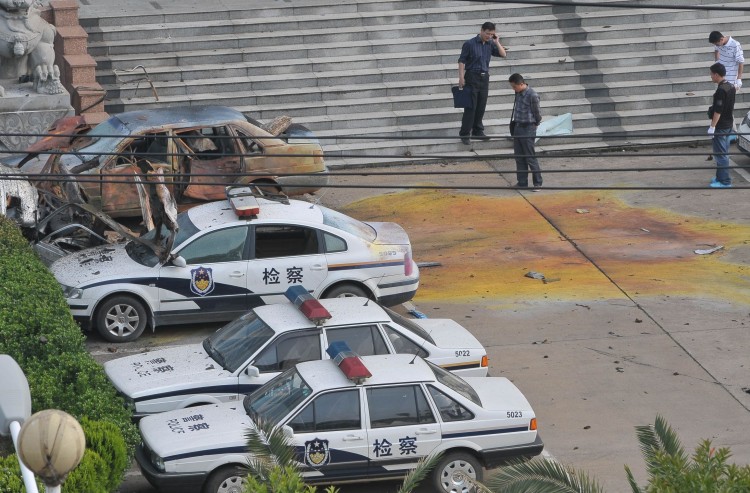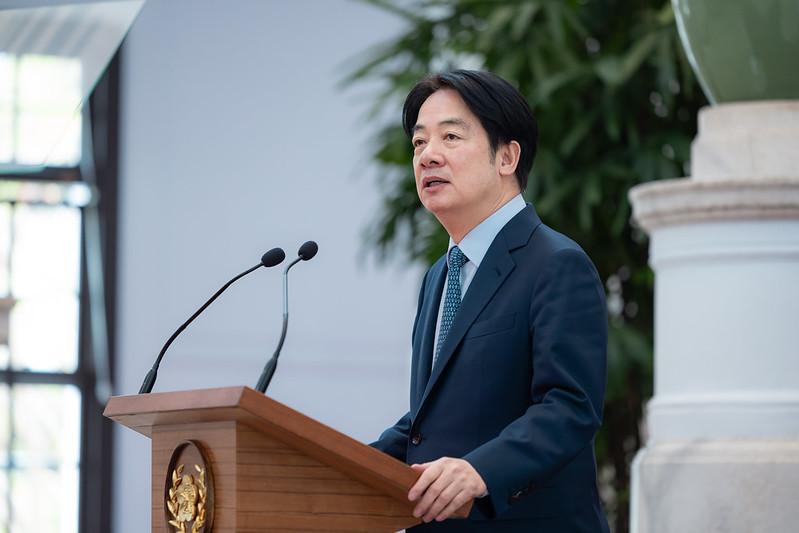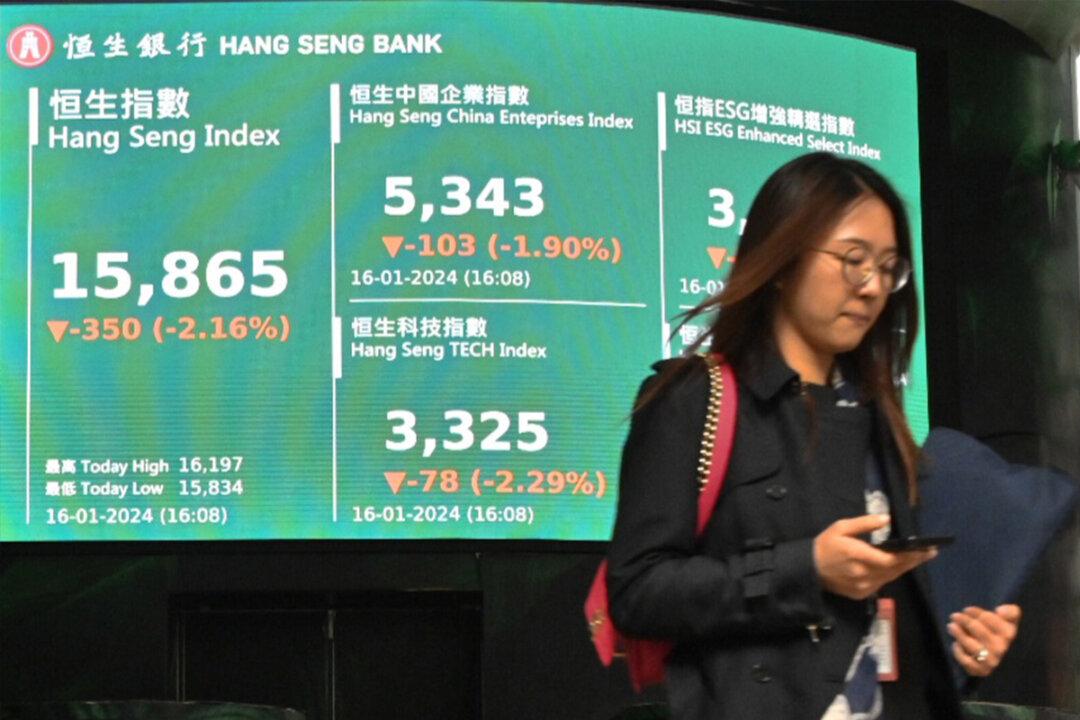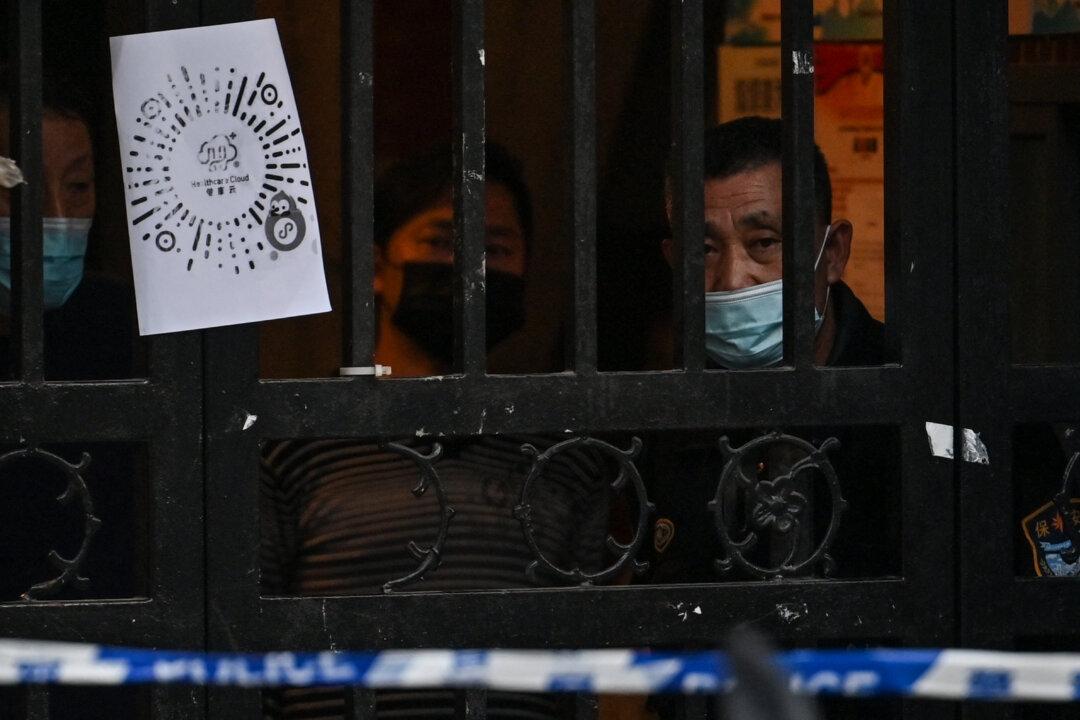Bomb Attacks Target State Buildings in China
The communist regime attempts to block the news and to divert attention.
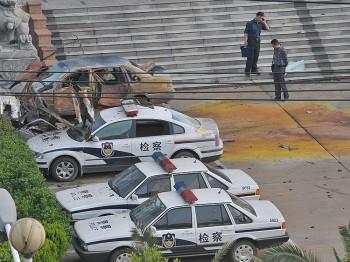
Officials stand beside damaged cars at a government office after an explosion occured in Fuzhou city, in east China's Jiangxi Province on May 26, 2011. AFP/Getty Images
|Updated:
